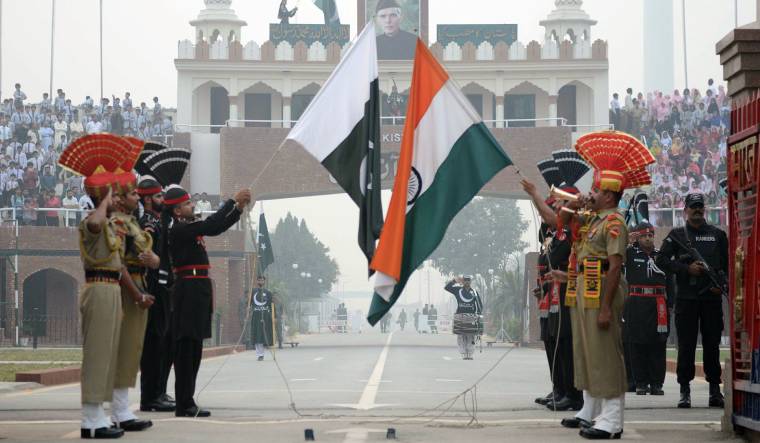The relationship between India and Pakistan continues to nosedive. While the Line of Control (LoC) between the two neighbours continues to remain active, the war of words between the two countries has begun.
On Sunday, Prime Minister Imran Khan took to Twitter to accuse Prime Minister Modi of “targeting’’ Muslims. "The deliberate & violent targeting of Muslims in India by Modi (Prime Minister Narendra Modi) Govt to divert the backlash over its COVID-19 policy, which has left thousands stranded & hungry, is akin to what Nazis did to Jews in Germany. Yet more proof of the racist Hindutva Supremacist ideology of Modi Govt," Khan tweeted.
Responding strongly, the spokesperson of the ministry of external affairs, Anurag Shrivastava, said: “The bizarre comments by the Pakistani leadership are an attempt to shift focus from the abysmal handling of their internal affairs..On the subject of minorities, they would be well advised to address the concerns of their own dwindling minority communities, which they have truly discriminated against.’’
Earlier, on Friday, Army Chief M.M. Naravane had said that while India was exporting medicines and medical teams to fight COVID-19, Pakistan was just exporting terror.
While Khan’s targeting of Modi is not new, his accusations come in the backdrop of a statement of “discrimination and violence’’ by the Organisation of the Islamic Cooperation’s Independent Permanent Human Rights Commission on Sunday. In a statement, the organisation urged the Indian government to take “urgent steps to stop the growing tide of Islamophobia in India” and to do so as “per its obligations under International Human Rights law.”
This is not the first time that OIC has chosen to criticise India. In December, OIC had issued a statement to “ensure” the safety of Muslim minorities, post the passing of the Citizen (Amendment) Act. This was in stark contrast to the time when the former minister of external affairs, Sushma Swaraj, had attended and addressed the OIC plenary in March 2019.
So far, the MEA has not responded to the OIC’s IPHRC statement. The adverse statement on India by the OIC would have a Pakistani hand, without doubt. Khan’s statement also comes on the heels of fresh tensions between the two countries over two fallen domes at Kartarpur Sahib. The visa-free corridor, which was seen as a corridor of hope, so far, has become another battleground between both the countries.
In what would have been embarrassing to Pakistan, pictures of two domes of the gurudwara that had been blown off during strong winds and rain went viral on Sunday, The Kartarpur gurudwara with a visa-free corridor had been thrown open in November and any structural damage to the building hinted at the quality of the material used.
India raised the issue with Pakistan on Sunday, sparking off the beginning of a war of words. India took up the damage with Pakistan asking for it to be rectified “urgently”.
Things have gone downhill from there. Pakistan claimed the repair work was completed within 24 hours of the damage, and that this was done before India even raised it. The incident, according to a press release by a spokesperson of Pakistan’s Foreign Office, occurred on April 17 due to “strong winds caused by a severe storm”.
Taking the fight several notches up, Pakistan chose to point a finger at India in turn. “India would be well-advised to take steps to effectively protect the minorities and their places of worship, rather than feigning concerns for the rights of minorities elsewhere,” the press release stated.
Even when the two countries ostensibly cooperate on a common cause, friction remains. PM Modi’s initiative to start a SAARC emergency fund to combat COVID-19 was met with enthusiasm by every country in South Asia at first, except Pakistan. After Bhutan, Nepal, Afghanistan, Sri Lanka, Bangladesh and the Maldives all announced contributions to the same, Pakistan finally chipped in with $3 million—but on condition that the fund’s spending be left to the SAARC secretariat.
All this comes as both countries regularly skirmish along the LoC, as militants attempt to use the diversion caused by COVID-19 to cross the border.
The MEA has also had to fend with criticism from outside of Pakistan-influenced circles as well.
Earlier in the week, the US Commission on International Religious Freedom criticised India, Pakistan and Cambodia for their “failure to protect vulnerable religious communities” and “increased stigmatization”. The MEA reacted strongly, accusing the USCIRF of spreading “misguided reports.”



